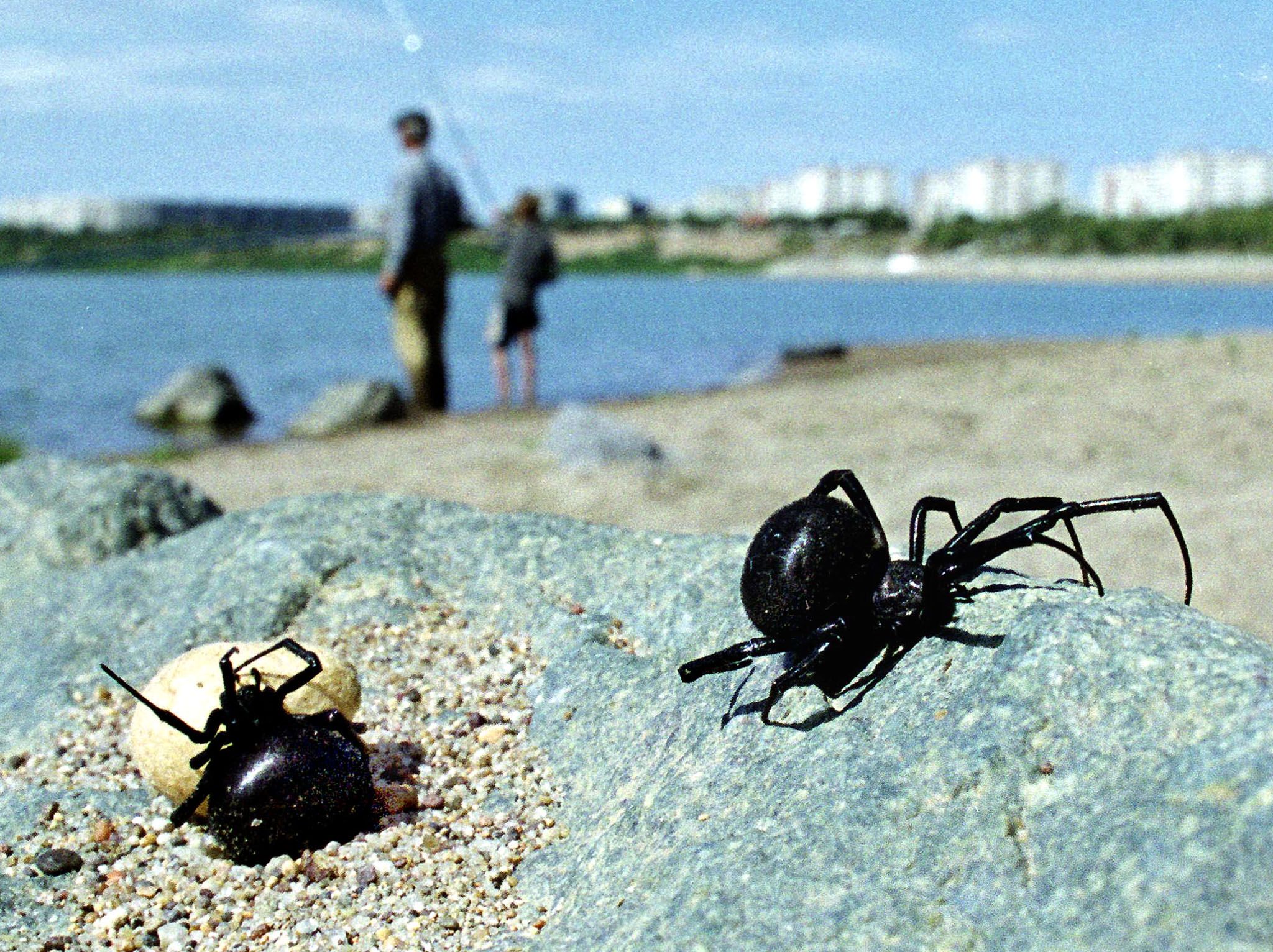
Kailyn Donovan, a 5-year-old girl from Mendon, Massachusetts, didn't feel a thing when the black widow spider bit her. "It could have been in her jeans," her mother, Kristine, told CBS Boston. The bite itself raised no suspicion at first because it looked like an ordinary bruise.
But the small, purple mark on the back of her knee soon turned into a long, black stripe. Kailyn's father thought it was a bug bite that happened to be accompanied by a fever stemming from a cold. After Kailyn's school called to tell her parents their daughter had a fever, The Washington Post reports, they headed to a pediatrician, who told the parents to get their daughter to the nearest ER. There, she was given antibiotics.
The black stripe would not disappear, so they sought help from an infectious disease specialist at UMass Memorial Medical Center. The diagnosis: a black widow spider bite, which brings an injection of flesh-killing poison. The black mark was the venom.
Kristine Donovan told reporters the spider may have been disrupted while the family was doing yardwork. These spiders do not chase people. "It probably upset one of them," the mother told reporters, and Kailyn "was just in the wrong place at the wrong time."
The Donovans are cautioning other parents to be vigilant. "If you think it's something, just keep looking for an answer," Donovan said in a video interview. "I kind of had a feeling it was pretty bad, and I just kept pushing to have it checked out."
Black widow spiders are among the most venomous arachnids in North America, although they tend to not bother humans unless they are first bothered. Female black widows are known for eating their mates—a practice called sexual cannibalism, and the source of the "widow" in their common name—along with whatever other spiders and insects get caught in their webs. Black widows are also distinguished by their "comb feet," the stiff, short hairs on the last segment of their fourth pair of legs, which the spiders use to wrap their prey in silk.
Black widow venom attacks the nervous system, and although it is often undetectable initially, the poison may soon trigger nausea, sweating, elevated blood pressure, tremors and increased white blood cell counts. While experts at North Carolina State University say the bites are usually not lethal, anti-venom serum should be administered as soon as possible after a bite occurs.
Kailyn is now on the mend and was well enough to attend her recent graduation ceremony:
Kailyn Doonovan of Mendon recovering from a Black Widow Spider bite. pic.twitter.com/wU1aOkvA62
— Lana Jones (@Lanawbz) June 12, 2017
Uncommon Knowledge
Newsweek is committed to challenging conventional wisdom and finding connections in the search for common ground.
Newsweek is committed to challenging conventional wisdom and finding connections in the search for common ground.
About the writer
Jessica Wapner is the science editor for Newsweek. She works with a talented team of journalists who tackle the full spectrum ... Read more
To read how Newsweek uses AI as a newsroom tool, Click here.








